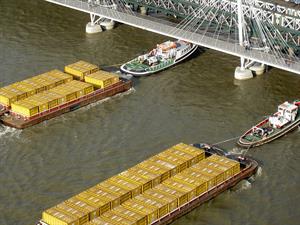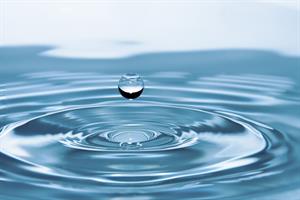
PUMPA - SMART LEARNING
எங்கள் ஆசிரியர்களுடன் 1-ஆன்-1 ஆலோசனை நேரத்தைப் பெறுங்கள். டாப்பர் ஆவதற்கு நாங்கள் பயிற்சி அளிப்போம்
Book Free Demo The measures necessary to control the movement of water and conserve the supplies of it can also serve subsidiary purposes of value to the life of the countryside. By far the cheapest form of internal transport in a country is by boats and barges through canals and rivers. We hear much about programmes of rails and road construction, but far too little about the development of internal waterways in India. Then, again the harnessing of water supplies usually also makes possible the development of hydro-electric power. The availability of electric power would make a tremendous difference to the life of the countryside and enable rural economy to be improved in various directions.
In one sense, water is the commonest of liquids. In another sense, it is the most uncommon of liquids with amazing properties which are responsible for its unique power of maintaining animal and plant life. The investigation of the nature and properties of water is, therefore, of the highest scientific interest and is far from an exhausted field of research.
In one sense, water is the commonest of liquids. In another sense, it is the most uncommon of liquids with amazing properties which are responsible for its unique power of maintaining animal and plant life. The investigation of the nature and properties of water is, therefore, of the highest scientific interest and is far from an exhausted field of research.
Explanation:
The measures discussed above, to handle the flow of water and to conserve water, also serves a secondary purpose. It helps the people of the country by serving as a mode of transport. One of the cheapest forms of transportation in a country is the water transport (boats). Boats sail through canals and rivers. Instead of spending huge amounts on rail and road transport system, we can concentrate on internal waterways. Also, hydro-electric power may be tapped from the water resources. The production of electric power can greatly benefit rural parts of India, and it facilitates growth in all directions.

Boats barges through canals and rivers!
Water is the most common form of all liquids because it is available to all. But how can it also be the most uncommon form is a question; it has wonderful properties which enables it to sustain plant and animal life. How can the most common form of liquid also have such exceptional properties? The examination of the nature and features of water is always of tremendous interest and research in the field of water is still a never-ending process.

Water - the most common and uncommon form of liquid!
Meanings of difficult words:
No. | Words | Meanings |
1 | subsidiary | less important than but related or supplementary to something |
2 | barges | convey by a long flat-bottomed boat for carrying freight on canals and rivers |
3 | exhausted | completely used up, finished |
Reference:
State Council of Educational Research and Training (2019). Term-2 English Standard-9. Water - The Elixir of Life - Sir C.V. Raman (pp. 121-145). Published by the Tamil Nadu Textbook and Educational Services Corporation.